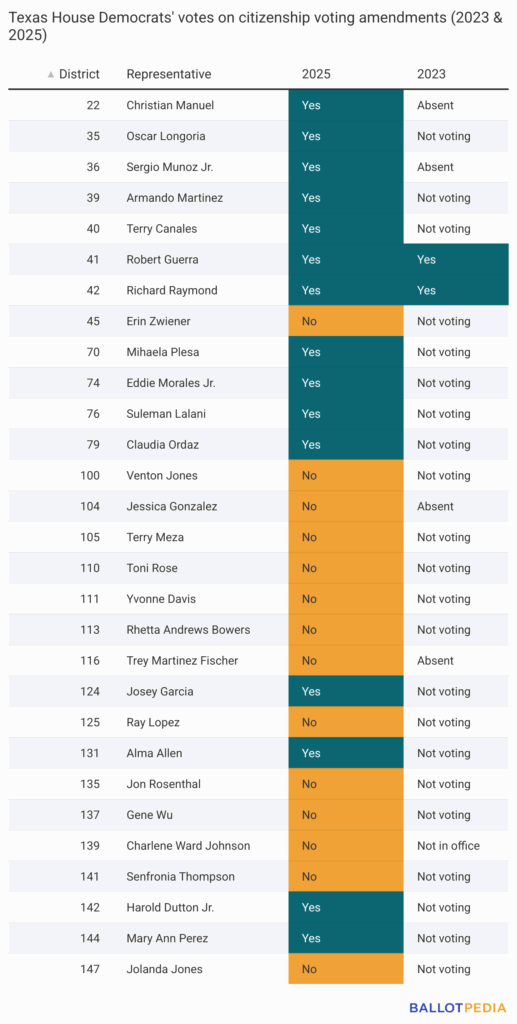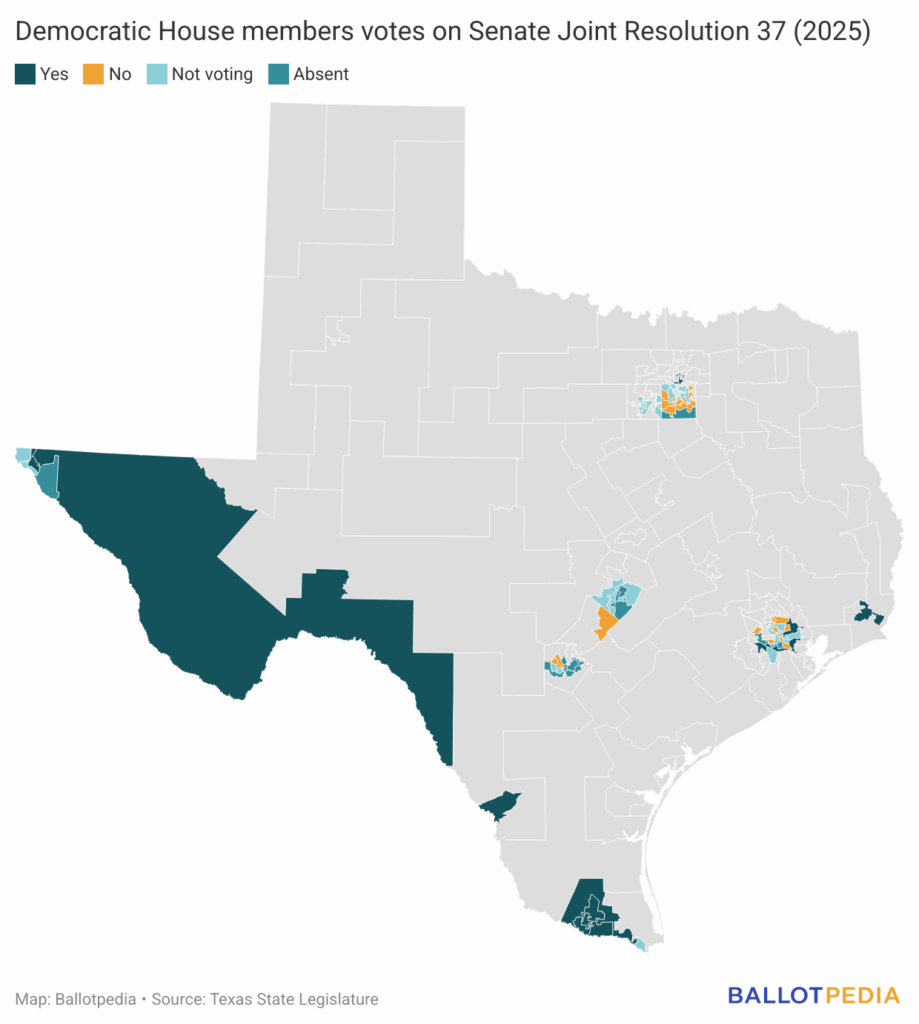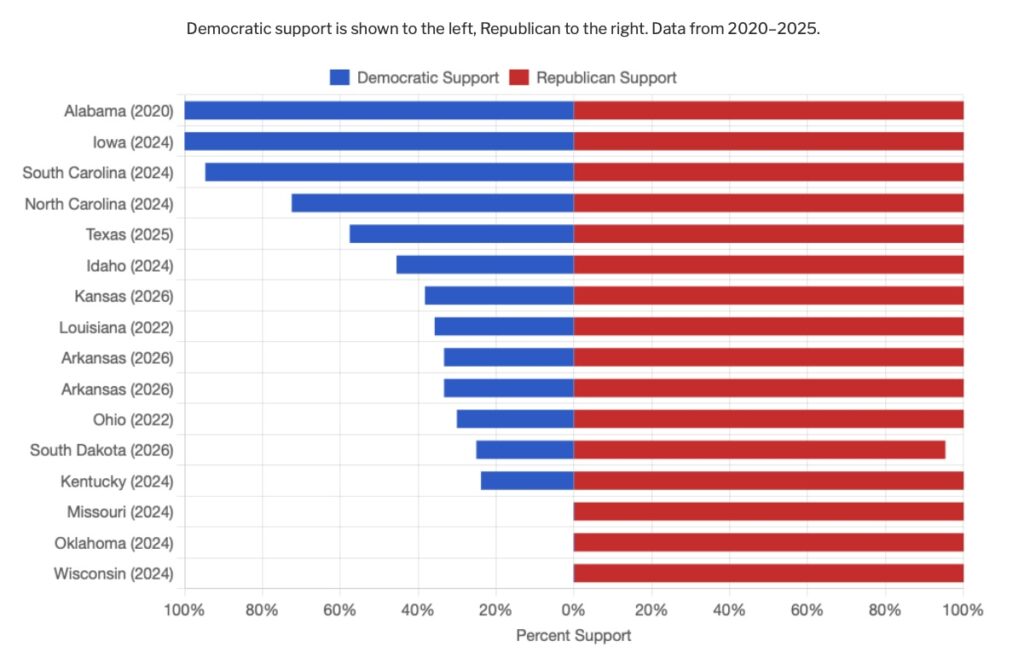Fifteen House Democrats joined the Republican majority in voting to send a constitutional amendment to voters on Nov. 4 that would add noncitizens to the list of persons not allowed to vote in the state after the same resolution was defeated during the state’s last legislative session in 2023.
The list in Section 1, Article VI of the state constitution, currently includes persons under the age of 18, persons determined to be mentally incompetent by a court, and persons convicted of a felony, with some exceptions.
A two-thirds supermajority vote in each chamber is required in Texas to place a constitutional amendment on the ballot. This amounts to 100 votes in the state House and 21 votes in the state Senate, assuming no vacancies. The Republican party controls both chambers but needs 12 Democrats to join them in the House and one Democrat in the Senate to meet the threshold.
During the 2023 legislative session, the Senate approved Senate Joint Resolution 35, which proposed adding the same language to the state constitution, by a vote of 29-1, with one senator absent. The resolution was defeated in the House, which voted 88-0 with 54 members present and not voting and seven absent. Six Democrats joined the Republican majority in supporting the amendment. The resolution required 100 votes to be adopted.
In 2025, the amendment was reintroduced as Senate Joint Resolution 37 (SJR 37). On April 1, the Senate passed it by a vote of 28-3, with all 20 Senate Republicans voting in favor. Of 11 Senate Democrats, eight voted in favor and three voted against. Sen. Sarah Eckhardt (D-14), who cast the only vote against the amendment in the Senate in 2023, was joined in 2025 by Sens. Roland Gutierrez (D-19) and Molly Cook (D-15) in voting against it.
The House approved SJR 37 by a vote of 102-14, with 22 members present and not voting and 12 absent. Two Democrats—Reps. Richard Raymond (D-42) and Robert Guerra (D-41)—voted in favor of the amendment in both 2023 and 2025. Thirteen other Democrats who voted “yes” in 2025 had been present but did not vote in 2023. Rep. Nicole Collier (D-95), who supported the amendment in 2023, was present but did not vote in 2025.
Below is a table comparing how Democrats who voted “yes” or “no” in 2025 voted in 2023.

The map below shows how each Democratic state House member voted in 2025 on the amendment.

In 1996, the U.S. Congress passed a law prohibiting noncitizens from voting in federal elections, such as U.S. House, U.S. Senate, and presidential elections. Federal law did not address state or local elections. Currently, the District of Columbia and municipalities in three states allow noncitizens to vote in local elections. To see the status of noncitizen voting in each state, click here.
From 2020 to the present, 16 state legislatures have placed constitutional amendments on the ballot to require citizenship to vote in state and local elections. Republican legislators supported the amendments, averaging 99.7%. In all but one state—South Dakota (2026)—every Republican legislator voted in favor; in South Dakota, 95.3% supported the amendment. Democratic support varied between states, averaging 43.1% and ranging from 0% in Missouri (2024), Oklahoma (2024), and Wisconsin (2024) to 100% in Alabama (2020) and Iowa (2024). Fourteen states have approved amendments related to adding language about citizenship requirements for voting, including three citizen-initiated measures.
In 2026, voters in Arkansas, Kansas, and South Dakota will decide on similar amendments.
The chart below shows the legislative support by state for citizenship voting requirement amendments.




